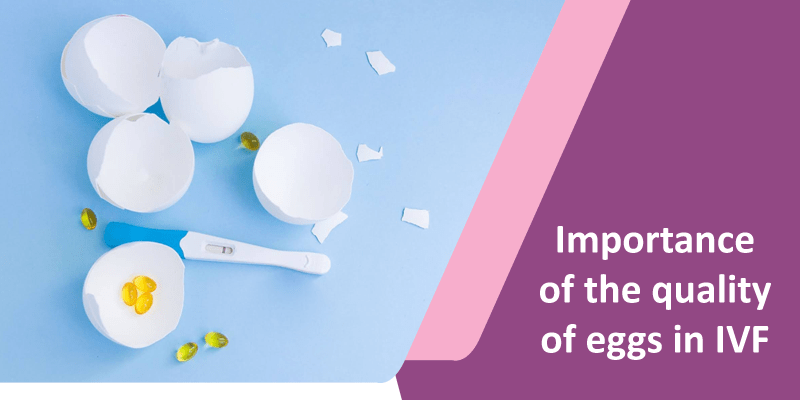Importance of the quality of eggs in IVF
Egg quality is one of the key factors that determine the success of the IVF cycle. Egg quality p probability of an embryo implanting itself in the woman’s uterus. This is often dependent on whether or not the egg is normal genetically. But why is the egg quality so important? It is a proven fact that high-quality eggs result in high-quality embryos that are capable of surviving the stages of development to end up as a successful pregnancy.
Egg quality is directly connected to fertility
A woman when born has all the eggs that she will release in her lifetime. These eggs are stored in her ovaries in an immature form. Once she starts to menstruate, a single egg grows, matures and is released every month. This means that she has one chance in a month to get pregnant. If the egg released is normal, it can lead to a normal and healthy pregnancy. If the egg is abnormal, it may fail to fertilize or may lead to miscarriages. If the pregnancy progresses, the baby may be born with genetic disorders. As age increases, the number of normal eggs in a woman’s ovaries decline and this is the reason why fertility naturally declines after the age of 35.
Egg quality in IVF
Like natural fertility, the quality of eggs is of great importance when it comes to the success of IVF too. If using frozen eggs that were extracted when a woman is young or if using frozen donor eggs, chances are that the eggs are high quality. When using freshly extracted eggs from a woman over 30, the eggs collected may be abnormal. Abnormal eggs fail to fertilize or may lead to failure of implantation of the embryo. There is also the risk of miscarriage and genetic disorders in the baby if the embryo manages to develop despite the abnormality of the egg.
Choosing high quality eggs
During the egg retrieval procedure, the fertility expert is guided by ultrasound as he/she uses a needle to retrieve the eggs. Later, your fertility expert checks the maturity of the eggs and will use only mature eggs to fertilize them with sperms from your partner or donor. Some of these eggs will get fertilized and under the watchful eyes of our fertility experts and embryologists, they begin growing into embryos. Only the healthiest and embryos of the highest quality will be selected by the fertility expert to be transferred into your womb to ensure increased chances of pregnancy.
How can egg quality be tested?
Unlike egg quantity, egg quality cannot be tested using ultrasound and blood tests. Age and ovarian reserve are the important determiners of egg quality. Reduced ovarian reserve and increased age are proven to be connected to the reduced chances of pregnancy. In a 30-year-old woman, only 12% of her eggs can lead to pregnancy. At 40, only 4% of her eggs are viable.
How to improve the quality of the eggs?
The quality of eggs will decline with time irrespective of your lifestyle choices. But better lifestyle and habits can help slow the rate of decline. Avoiding smoking and drinking are helpful to retaining the quality of eggs for a longer period of time. A healthy lifestyle, avoiding stress and eating healthy, and taking supplements have also proven to be helpful to improve egg quality.

